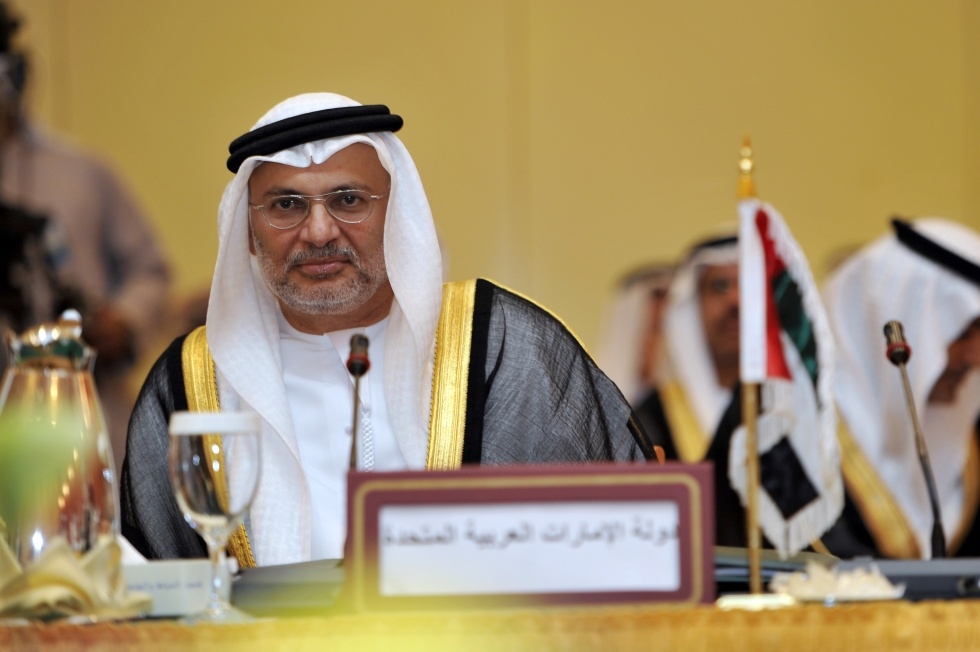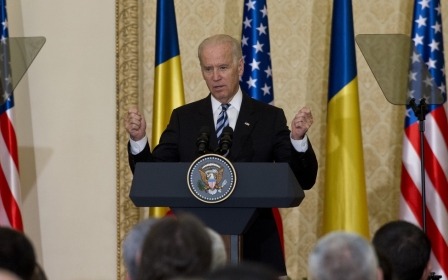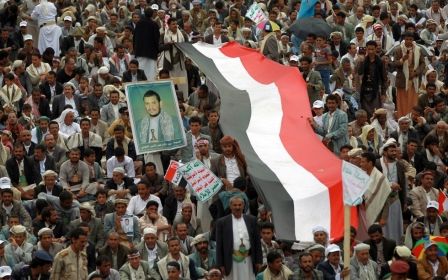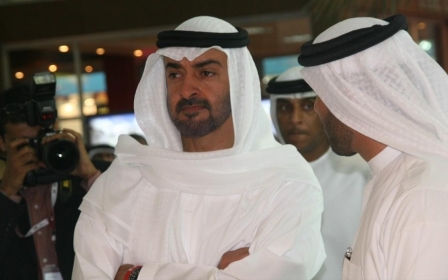UAE must reveal whereabouts of 'disappeared' Libyans and Emiratis: HRW

Human Rights Watch on Sunday called for the UAE to immediately reveal the whereabouts of 10 Libyans and six Emiratis believed to have been detained by Abu Dhabi’s State Security Agency (SSA).
The New York-based watchdog said Emirati authorities “appear to have forcibly disappeared” two of the Libyan detainees, brothers Mohamed and Salim Elaradi, and warned they are at risk of being tortured.
“Enforced disappearances are grave international crimes that can place victims at serious risk of torture and cause their families anguish,” said Joe Stork, deputy Middle East and North Africa director at Human Rights Watch. “The new disappearances are evidence of the UAE’s increasingly repressive behaviour.”
The two Elaradi brothers, businessmen who have lived in the UAE since the 1990s, were arrested in Dubai on 28 August by security forces. Human Rights Watch said “neither man has made any contact with their families” since their arrest and that authorities have refused “to acknowledge that the men are in custody”.
A source close to the two men previously told MEE that they hold “no political positions” but their arrest was “obviously to do with political grudges” relating to their brother Abdul Razak Elaradi – a member of the Libyan Muslim Brotherhood and former MP.
At the time of their arrest, Abdul Razak wrote on Facebook that he believed his brothers had been detained due to his “political affiliations” and accused Libya’s ambassador to the UAE Aref Ali Nayed of being “solely responsible” for their detention.
Human Rights Watch said in their Sunday statement they have seen a communique sent by ambassador Nayed to Libya’s foreign affairs ministry in Tripoli dated 7 September that confirmed the detention of the Elaradi brothers, as well as two other businessmen brothers Kamel and Mohamed Kamal Eldarat.
In early September, Abdullah al-Thani, prime minister of Libya’s Tobruk-based House of Representatives, made an official visit to the UAE to meet Sheikh Mohammed bin Zayed, Crown Prince of Abu Dhabi and Deputy Supreme Commander of the Armed Forces. During his visit, he confirmed the detention of seven Libyans, without providing names. After the visit, al-Thani said in a press release that the Libyans would receive a fair trial.
"The Libyan embassy," he said in the press release, "is only responsible for people who entered the UAE on their Libyan passports” in reference to the three other detainees who are dual nationals.
A human rights activist based in the UAE said the arrests were likely prompted by a report in the New York Times in August that quoted four unnamed American officials who said the UAE had carried out air strikes against the Misrata Led Alliance (MLA) in Tripoli.
“The arrests came right after the aerial attack [in Tripoli] and must be politically motivated,” said the activist, who requested anonymity due to fear of reprisal. “It could be that our SSA thought these guys [the detained Libyans] might seek revenge or that they could be used to put pressure on Islamists in Libya.”
UAE Foreign Minister Anwar Gargash has denied his country is responsible for air strikes in Libya, where unknown jets have continued to hit targets in the MLA-controlled capital.
Reveal whereabouts of detained Emiratis
The Human Rights Watch statement also called on UAE authorities to reveal the whereabouts of six Emiratis arrest on 22 September in Kor Fhakkan, a town in the emirate of Sharjah. The group said the detained men had not contacted their families since being arrested and that it was “not clear” if authorities had denied holding them.
An exiled Emirati political activist who now lives in London told MEE those detained “are young men between the ages of 17 and 25.”
“They might have wanted to go to Syria, or had recently returned from fighting there,” the source said, who asked to remain anonymous due to sensitivity around the situation. “They are being held by the SSA and we think they will be, or have already been, tortured – as is common in these situations.”
The Emirati human rights activist said the men “are most likely Salafists” and speculated that they will appear in court charged with terrorism offences in the coming months.
“The SSA will probably fabricate terrorism charges against the men, based on confessions taken under torture, and after months of enforced disappearance they will be brought to court and given long prison sentences,” the activist said.
The UAE has been consistently accused of torturing political prisoners by international rights groups. In February this year, a UN expert said she had evidence of detainees being “tortured and or subjected to ill-treatment”.
Gabriela Knaul, the UN Special Rapporteur on the Independence of Judges and Lawyers, made the remarks in a preliminary report after visiting the UAE to assess judicial independence and called for an investigation into the allegations of torture.
Emirati officials have repeatedly said they do not torture political prisoners and accused the UN of relying on information from sources with a “politically motivated campaign…to tarnish the reputation of the UAE”.
The Ministry of Foreign Affairs in Abu Dhabi could not be reached on Monday for comment.
New MEE newsletter: Jerusalem Dispatch
Sign up to get the latest insights and analysis on Israel-Palestine, alongside Turkey Unpacked and other MEE newsletters
Middle East Eye delivers independent and unrivalled coverage and analysis of the Middle East, North Africa and beyond. To learn more about republishing this content and the associated fees, please fill out this form. More about MEE can be found here.




